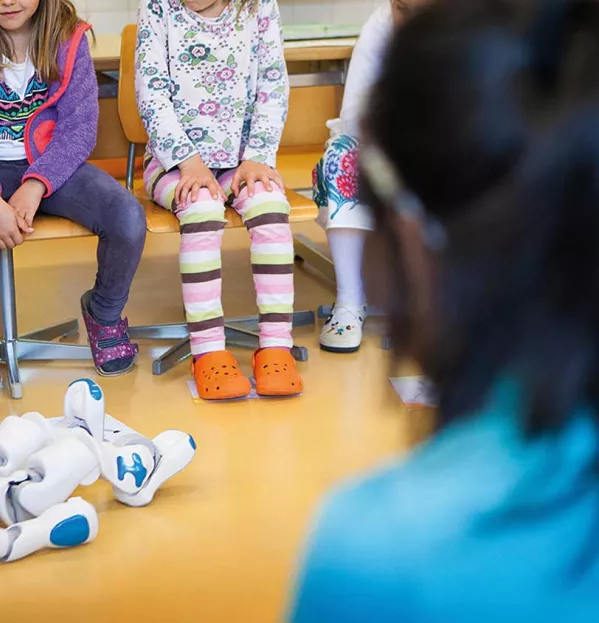Technology can be used to perform a huge range of tasks to assist teachers - but could teachers be replaced by robots?
The unprecedented pace of technological change is likely to sweep away many jobs. According to a University of Oxford study, almost half of US jobs are at risk of automation in the next 20 years. That’s not to say technology doesn’t bring benefits - not least in the classroom. An artificial intelligence could write personalised textbooks, learn a curriculum and adapt presentations for each student. It could be a translator for immigrant students. Sensory technology could track attendance in schools. Avatars could showcase faraway worlds through virtual reality.
If the teacher’s only role were to pull levers in a child factory, churning out exam-ready pupils as cheaply as possible, then perhaps a robot could replace them. But what could a robot do to support the student struggling to stay awake in class because they’ve just finished a 40-hour working week to put food on the plates of their younger siblings? Or to comfort a teary-eyed pupil who wants to open up about sexual abuse that they’ve suffered? Or to find a way to put back on track the child who has strolled in late, yet again, glued to his mobile phone but without his schoolwork?
Can technology navigate the intricacies of these vastly different situations? And can it know what, in the long-term, is in the student’s best interests? These are real problems I’ve faced. And I didn’t solve them with an algorithm but with a human heart and human instincts and human relationships.
More time to build relationships
I was able to support the exhausted student by allowing him to nap and giving him an extension on his work; he is now on his way to becoming an engineer. I was able to give the student who came to me in tears the time she needed to compose herself, and maintain her dignity with her peers, before ensuring she was connected to support and the authorities. She told me that the safe place provided by a human relationship was the difference that saved her life; she is now doing very well at university.
I was able to give the tardy student a strict deadline and help with his procrastination and self-perception. This was done in partnership with his parents, and we helped him to develop a strong work ethic and time-management skills. He has now been accepted at medical school.
I am not a Luddite. I firmly believe technology plays a supporting role in education. Artificial intelligence will automate many time-consuming tasks that put a strain on teachers. And this is vital because it will free teachers up to build the relationships they need to make a real difference to children’s lives - in the way a robot never can.
Armand Doucet was shortlisted for the 2017 Global Teacher Prize and is co-author of Teaching in the Fourth Industrial Revolution: standing at the precipice
